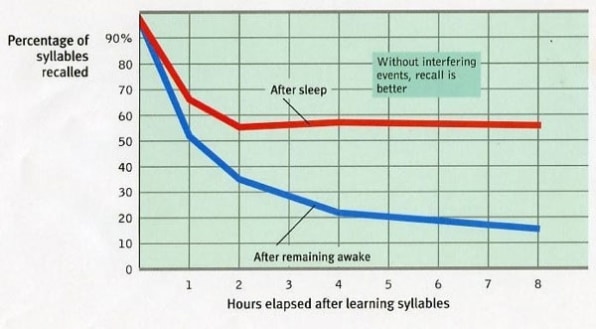It seemed a good time to reveal the connection between allergies, or sinusitis, and stroke with allergy season right around the corner.
A long, long time ago, when I was 12, I went to the circus with my parents and to their friends' house after. I developed allergies then, to all the animals, never having a pet of my own at home. My mother wouldn't allow any pet to wander about except those that were boxed, caged, or swam under water. Thus, I never was subject to knowing.
When we stopped at the friends' house after the circus, I was already wheezing, congested, hive-y, and miserable. My mother told me to be friendly and stop whatever I was doing. But I didn't stop because I couldn't. Finally, after 2 hours, we arrived home and I took the next day off from school because I was so fatigued. Welcome to anaphylaxis.
First, a little background. Anaphylaxis, aka a severe allergic reaction, is known and diagnosed by respiratory and circulatory dysfunction, and usually associated with skin (for example, hives) and mucous changes. Anaphylaxis may be deadly when the circulatory
and respiratory systems are severely disrupted. When death occurs, it is usually the result of anaphylactic shock. I was lucky. The symptoms went away by themselves by the next afternoon.
I'm allergic to aspirin and NSAIDS (non-steroidal anti-inflammatory drugs), too. About 20 years after the wheezing et al episode, I took a Motrin, an NSAID, for a bad back and the exact thing happened. This time, I went to the doctor that same day and he told me that I had an anaphylactic reaction.
Sinus problems, or acute sinusitis, related to anaphylaxis affect 1 in 5 American adults each year, according to the Asthma and Allergy Foundation of America. Sinus conditions can trigger headaches and congestion (and there's much more), but a new study from Taipei Medical University in Taiwan says "the inflammation that causes the pain and pressure of a sinus infection also increases the odds of suffering a stroke— by 34 percent for people with chronic sinusitis and by 39 percent for those with occasional acute infections."
The relationship of acute sinusitis to stroke reflects more of a risk to adults in midlife, since about 37 percent of stroke patients are between 45 and 65, according to the Centers for Disease Control and Prevention.
"Sinus infections are most commonly caused by the same viruses associated with the common cold," says Dr. Meera Gupta, assistant professor of allergy and immunology at University of Texas Medical Branch at Galveston.
"When a virus sets up shop in your sinuses, it produces inflammation that causes the telltale pressure around the nose and eyes. In addition to a headache, the infection can sometimes bring on congestion that lasts about a week, along with thick, discolored mucus and facial or tooth pain. Typically, these infections will resolve on their own within 7 to 10 days," Gupta says.
In roughly 2 percent of cases, the infection doesn't resolve, an indication that a bacterial infection requiring antibiotics may happen.
The constant need to blow your nose and the pain can be bothersome. The inflammation in your sinus cavities can also trigger a stroke. Sinus inflammation, located close to your brain [the operative phrase], may also put pressure on the arteries which could prevent normal blood flow and lead to a stroke.
So the relationship between anaphylaxis and sinuses is this: The first step in preventing anaphylaxis is avoiding the allergen(s) that can cause you to react.
For typical inflammation, over-the-counter nasal sprays should suffice," says Dr. James Stankiewicz, chairman of the Department of Otolaryngology at Loyola University Medical Center in Illinois.
"Sprays made from saline or saltwater are sold over the counter and help drainage. Decongestant sprays, which may be prescription or over the counter, help open the nose to breathe and reduce congestion and drainage." Steroid sprays and nasal saline irrigation, usually with salt water, are good as well, Stankiewicz says.
"Seasonal allergies are another major cause of sinus inflammation.
Allergies can block normal sinus drainage and predispose a person to developing sinus infections," Stankiewicz says. If you experience congestion or sinus irritation during hay fever season, when the pollen count is high, or if you are exposed to animal dander or mold, there's always allergy shots that usually take a minimum of 9 months to determine protection from allergens.
Sinuses can also be a path to leave you vulnerable to compromised health beyond the proven stroke risk.
"Chronic sinus congestion can lead to snoring and sleep apnea, which is associated with an increased risk of cardiovascular disease," Stankiewicz says. "In addition, chronic inflammation in the sinuses associated with allergies can cause lethargy, fatigue, and cognitive impairment."
Most anaphylactic reactions occur after eating or drinking a particular food, taking certain medication, after an insect sting, or after exposure to an allergen like latex gloves. In rare cases, anaphylaxis can happen after exposure to the cold or after exercising, as it did to me after running in the cold with wheezing and hives in the aftermath. Sometimes, you'll find out the hard way, never knowing before that you were allergic.
Life's a bitch, but it beats the alternative.
|
|












